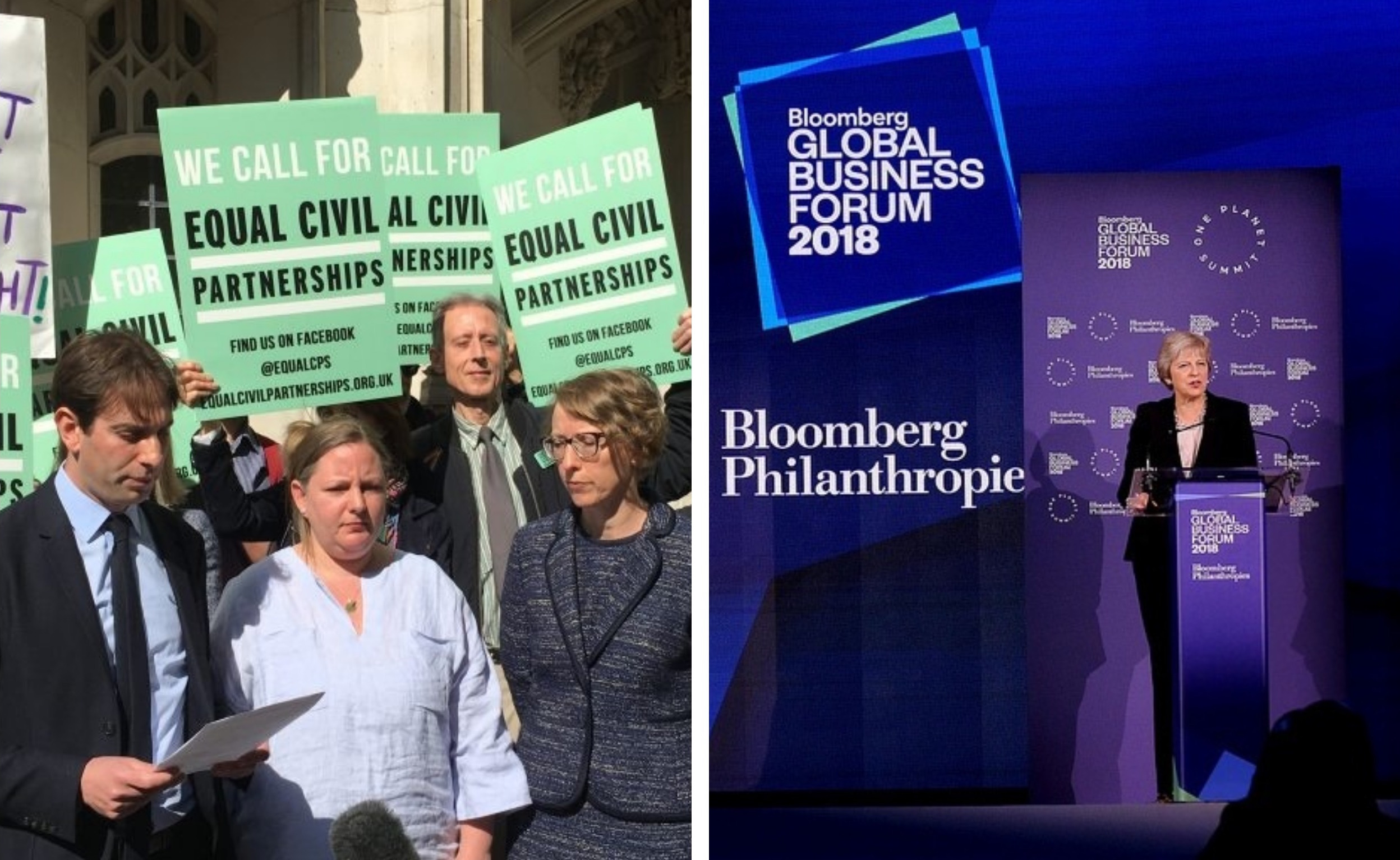Men and women who don’t wish to get married will now be able to instead enter into a civil partnership, the Prime Minister has announced.
Speaking from the Conservative Party Conference in Birmingham, Mrs May said the move would give all couples the same choices in life.
“As Home Secretary, I was proud to sponsor the legislation that created equal marriage,” she continued. “Now, by extending civil partnerships, we are making sure that all couples, be they same-sex or opposite-sex, are given the same choices in life.”
The move, which followed a lengthy legal battle, by campaigners Rebecca Steinfeld and Charles Keidan, could affect up to 3.3 million unmarried couples in the UK.
How Did Civil Partnerships For All Come About?

Image via Benjamin Lowrie
It follows a ruling from the Supreme Court in June this year, which agreed with the couple’s arguments about equality.
They had told the court the current situation violated their Article 8 right to family and private life, given they didn’t want to take part in traditional marriage due to its “patriarchal baggage”.
Steinfeld and Keidan’s successful appeal came as a result of a High Court decision to reject their case in 2016, where the government successfully argued that it had “fulfilled its obligations” under Article 8 by traditional marriage remaining available to mixed-sex couples.
Government consulatations since have failed to produce a consensus as to how, or if, the legal position relating to civil partnerships should change.
Lord Kerr at The Supreme Court
Supreme Court justices ruled unanimously in their favour, with Lord Kerr commenting that there had been a conscious decision in 2014 not to extend civil partnerships alongside same-sex marriage.
He added “It was decided [at a previous court] that further investigation was required, and the government concluded that it should not take a final decision on the future of civil partnerships until societal attitudes to them became clearer after same-sex marriages had taken root.
“Government consultations since have failed to produce a consensus as to how, or if, the legal position relating to civil partnerships should change.”
In his judgement Lord Kerr also commented that the government had an obligation “to eliminate the inequality of treatment immediately”, and criticised the time taken to reach a final decision, saying “taking time to evaluate whether to abolish or extend could never amount to a legitimate aim for the continuance of the discrimination as it is not connected to the justification for discrimination”.
What’s The Difference In Law?
Speaking about the difference between the current options for formalising partnerships, Vicki McLynn, a family lawyer and Director at Vardags told RightsInfo said there were both “conceptual” and legal differences.
“Unmarried couples do not have the same legal protection as those who marry, in particular when that relationship breaks down or on the death of one party,” she explained.
“Heterosexual couples wanting to ensure they have this financial and legal protection currently have no choice other than to marry. In contrast, same-sex couples can either marry or enter into a civil partnership, both of which afford the same benefits.”
Looking forward to seeing lots more of these https://t.co/omw8QSgCTc
— Civil Partnerships (@EqualCPs) October 2, 2018
She added: “The history of marriage, and indeed divorce, means that for some it is associated with ownership and control. Civil partnership is free from any of these connotations so that many consider it a more equal and true partnership”
Ms Steinfeld added: “Charlie and myself can finally formalise our relationship in the way we see fit.”
However, the Government is yet to announce a timetable for the changes to take place.







